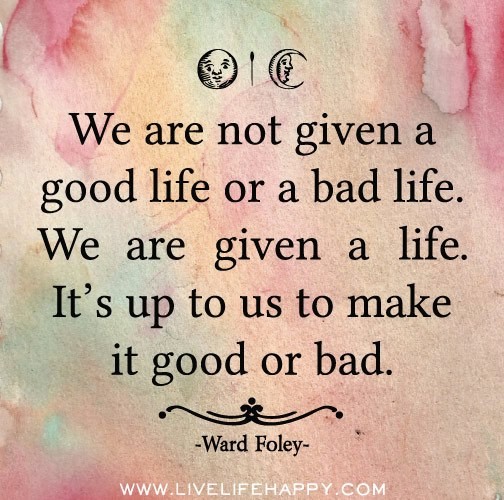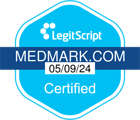
The Substance Abuse and Mental Health Services Administration (SAMHSA) tells us that approximately 45 percent of all the people who request substance abuse treatment—including opiate addiction treatment—have some kind of mental or emotional health disorder that occurs at the same time. The people at opiate addiction treatment centers refer to this existence of both addiction and another ailment as co-occurring disorders. It happens quite frequently, and there’s no reason to feel any stigma of shame about it if you think that maybe you’re affected.
Sometimes people who abuse drugs are forced into addiction treatment because they’ve been arrested or a family member has given them an ultimatum. When they learn from an opiate addiction treatment counselor that they also have a mental health diagnosis, they are relieved to learn there is an explanation for the feelings they’ve experienced or the behaviors they have been unable to avoid. In many cases they have taken drugs in order to cope with their emotional health because the drugs make them feel better. In other cases, they begin taking drugs and the drugs exacerbate, or make worse, a tendency toward emotional or mental health illness. They are propelled down a long corridor that they feel will never end.
If you have a mental health ailment, you are more likely than most people to experiment with drugs or alcohol. Almost 8 million American adults suffered from both in 2014. Opiate addiction treatment accounts for only a percentage of those people, and you may be among them.
What Mental Health Disorders Can Occur?
More people suffer from anxiety disorders than any other kind of mental health diagnosis. Children still in grade school can experience anxiety. Panic disorders can affect just about anyone. Some people are victimized by traumas, including physical or sexual abuse as well as wartime or accidental impacts on the body, that they have difficulty recovering from.
Attention deficit hyperactivity disorder affects 11 percent of children during their teen years. They are apt to experiment with pain pills or other substances that quiet the side effects of ADHD medication, often leading to a need for opiate addiction treatment.
Mood disorders affect people in their teens and beyond. Depression can strike anyone at any time. People tend to dismiss mood disorders, ADHD, depression, and anxiety as unimportant behavioral issues that a person “should just get over,” but that’s not the case. Whenever a youngster finds himself or herself unable to sustain performance in school, or if an adult can no longer function on the job or maintain their role within the family, the disorder is classified as a serious mental illness.
Certainly, even if they hear the words serious mental illness, the person can get better! Even as they work on opiate addiction treatment, their substance abuse counselor will help them work on their impairment. Many such illnesses come and go, and others persist, categorized as chronic.
About 4 percent of adults suffer from serious mental illnesses. They require a longer therapeutic regimen and may require long-term medication. Diagnoses such as bipolar disorder and schizophrenia can start in teens or when a person is in early adulthood. Symptoms can vary from person to person.
There are mental illnesses that cause a person to have visual or auditory hallucinations, meaning they see or hear things that are not there. Those who use pain pills are often trying to quiet those hallucinations, and in the end they need opiate addiction treatment as well as mental health therapy.
Often the symptoms of drug abuse are confused with those of mental illness, and the counselor cannot make an accurate mental health diagnosis until opiate addiction treatment is well underway. Once someone gets the drugs out of their system, it’s easier to see the light at the end of the tunnel.
Treating Mental Health and Opiate Addiction Treatment
SAMHSA, a federal organization that recommends protocols for the professionals who provide opiate addiction treatment, outlines four areas of particular importance for someone who is in recovery, and they certainly apply to those who have mental health disorders co-occurring with opiate addiction. Treatment must address these four areas:
Health: First of all, you must abstain from use of all drugs and alcohol. Once your mind and body are free of drugs, you will be prepared to work on the issues that caused your addiction and learn how to take control of your life. You will become responsible for your own good health and well-being.
Home: Your opiate addiction treatment counselor will ensure that you have a safe play to live, a place you can call home. How can you focus on addiction treatment if you are worried about where you will sleep at night? There are resources that the counselor will put at your fingertips and help you achieve.
Purpose: You will enjoy returning to a life in which you take care of yourself, your personal hygiene, finding a job, keeping your home clean, and all the other aspects of daily living that we as humans enjoy. Once you gain the feeling that you are an independent person in society, or a person who takes an active decision-making role, you can turn your back on petty issues and focus on wellness.
Community: Through attendance at group therapy, 12-step meetings, and as the person in charge of your own life, you will enjoy living as part of your community. It’s possible for each of us to enjoy fellowship and love, and you will find hope and light in all the corners of your life.
Counselors today talk about their clients’ SNAP—strength, needs, abilities, and preferences—and will want to help you find yours. Opiate addiction treatment therapy will take you a while, and so you will also have the time to work on your SNAP. Through organizations like Dual Recovery Anonymous, you will find people who struggle with the same issues as you. Many of them turn to their faith, and even if they do not believe in a higher power they find fellowship through the support network they develop and the people they meet in recovery. Most of all, there is the heart of you, the person who wanted to be clean and seek help in the first place. If you imagine it, you can make it happen. It all starts with a commitment to opiate addiction treatment.



